Well this is fun… The book I published last year, The Atonement of God, won a gold medal from the eLit awards in the “Religion” category.
If you haven’t read it yet, you really should. The first 70 pages are slightly more “technical,” so if the book is rough going at first, don’t let that put you off. The rest of the book is intensely practical. In it, I give you 10 areas of your life and theology that get turned upside down with a proper understanding of the crucifixion of Jesus.
To celebrate the gold medal, I have temporarily lowered the eBook price of The Atonement of God on Amazon to $2.99 (It’s only $0.99 if you previously purchased the paperback). Go here to buy it today.
If you are a pastor or lead a Bible study, the 10 chapters in Part 2 of the book would make a great sermon series or Bible study. If you just like to read for personal growth and development, this book will help you understand God, Scripture, and yourself in new ways as well.
Here are some reviews of the book that have been left on Amazon:
Most Christian’s are usually taught that God is constantly disappointed and disapproving of us and we have to fear him. This book teaches instead that God loves us. It isn’t a book that teaches God loves us unconditionaly, so just do whatever you want. It’s a lot more complicated than that, but it does teach that God has always loved us and we in turn must love, forgive and care for others. It’s a great book, and it will transform your view of God.
–imani42
OUTSTANDING BOOK! Thank you for helping me understand “Crucivision” and the “Non-Violent Atonement”. Together, they help it all make sense and fit so well into my personal thinking about God. I am encouraged to be truly free to love and forgive, because God has always loved and forgiven without condition, because Christ exemplified this grace on the Cross, and because the Holy Spirit is in the midst of all life, continuing to show the way through people like you.
–Samuel R. Mayer
If you have the same resolve as Paul, to know nothing but Jesus and Him crucified (2 Cor 2:2), then this book is for you. I read it the first time from start to finish on Father’s Day… no coincidence. This book revealed Father God’s true character; not as an angry wrathful God, but as a kind loving merciful Father to us. Share in Jeremy’s revelation concerning Jesus’ crucifixion, and how this “vision” of the crucifixion (hence “crucivision”) will make you fall in love with Jesus all over again, in a new and deeper way than you could imagine. Buy a copy for a friend–you won’t want to give up your copy because you will want to read it again and again until the Holy Spirit makes Jeremy’s revelation YOUR revelation.
–Amy
I’ve always been a curious mind and searcher, and many of the mainstream theology answers felt a little out of place. Now I know why I was dissatisfied with the explanations, not because they were wrong, but rather they were incomplete. Reading Jeremy’s book has shed a much needed light as it explores the character of God, who He is and how He acts towards us humans. It is the same, but different in a very comforting way. It presents God as ever loving and freely forgiving, needing no payment for sin, and explains the Non-Violent view of the redemption. Beware.. it might change your life!
–ThePilgrimm
This is a great read to say the least. The Atonement of God is one book I couldn’t put down. Ive been a follower of Christ for decades, reading this book has led me to be very reflective of what I have been taught about the atonement, Jeremy’s careful and insightful teaching from Gods word has caused a revolution in my thinking. Importantly, it showed me just how much of my understanding had been heavily influenced by past incorrect teaching without realizing it . This book has blown away my thinking that God is both angry and filled with wrath towards us and sin. Jeremy’s call for us to Interpreting Gods word through the lens of Christ is a startling experience and one we should all embrace. Thank you again for such a great read.
–Careful
This book gives another view of the doctrines we have been taught all of our lives. And this actually makes more sense than what we have heard. I myself have had some of these thoughts but couldn’t quite make the sense of it all by myself. J.D. Myers helped me answer some questions and settle some confusion for my doctrinal views. This is truly a refreshing read. Jesus really is the demonstration of who God is and God is much easier to understand than being so mean and vindictive in the Old Testament. The tension between the wrath of God and His justice and the love of God are eased when reading this understanding of the atonement. Read with an open mind and enjoy!
–Clare N. Brownlee
You can read the other review, learn more about the book, and even read a free sample of the book by visiting it’s product page on Amazon. And take advantage of the temporary price drop as we celebrate the gold medal award. (And if you don’t have a Kindle, that’s no problem … Download the free Kindle Reader app here for your computer, tablet, or smartphone.)


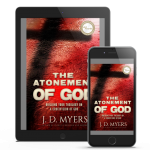
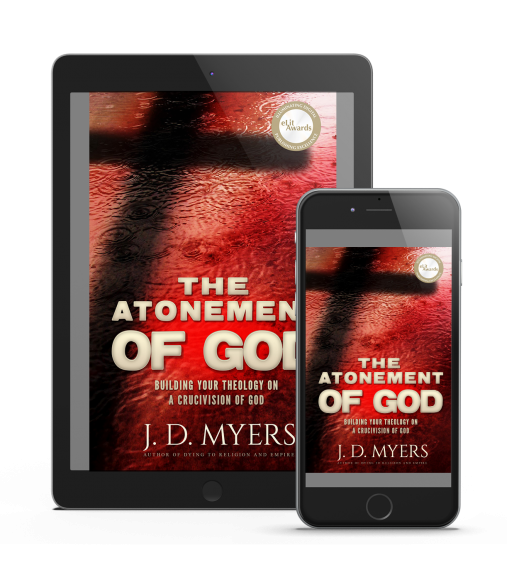
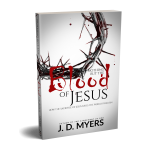
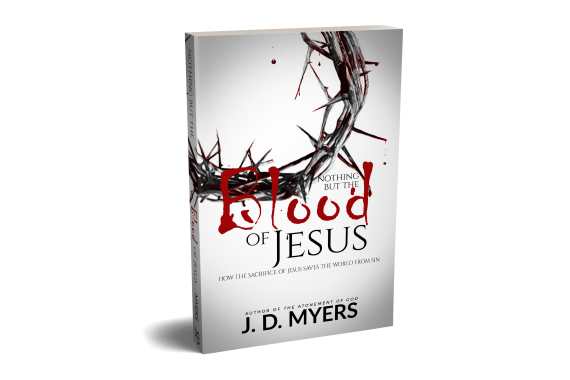

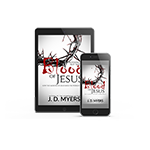
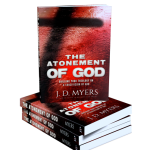
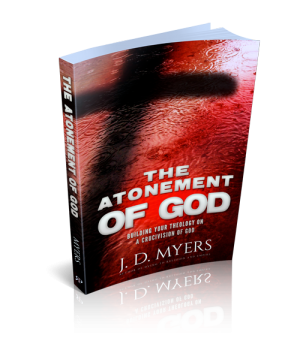
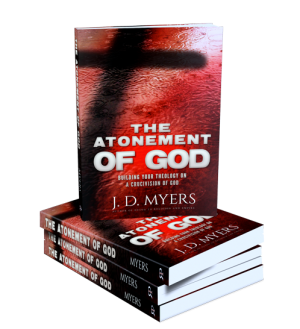 If you have read the book and want to buy paperback copies in bulk to give away or to study with friends, you can do that right here:
If you have read the book and want to buy paperback copies in bulk to give away or to study with friends, you can do that right here:
 Here is an expanded version of how I responded to him:
Here is an expanded version of how I responded to him:




